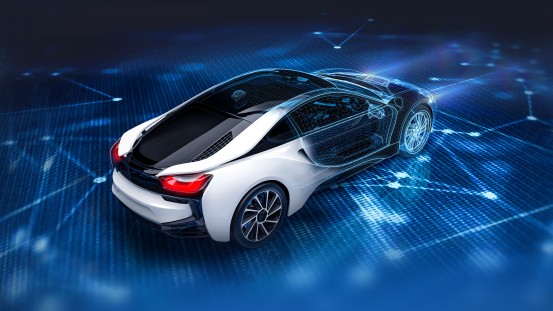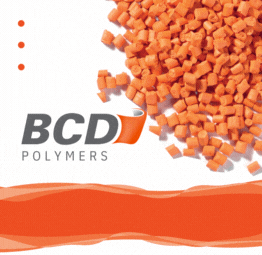The company will highlight efficient and sustainable production solutions for components such as battery housings, battery box and underbody covers and protection sheets. Solutions will feature technologies ranging from SMC to LFT-D/GMT to wet molding, all with the hydraulic press as the core element of the production process. The new digital platform EVORIS complements the forward-looking DIEFFENBACHER JEC World presence.
Marco Hahn, Director Sales of the Forming Business Unit at DIEFFENBACHER, will describe the company’s latest advances in a speech in Hall 5 on Wednesday, April 26, at 3:00 p.m. In “Turnkey plants and solutions for the production of composites components for E-Mobility,” Hahn will focus on SMC technology, wet molding, hybrid thermoplastic technologies and EVORIS.
With EVORIS, DIEFFENBACHER introduces a new approach to the digitization of hydraulic press systems and complete plants that takes advantage of artificial intelligence’s self-learning capabilities. With apps for condition monitoring and process analysis, plant operators gain transparency throughout the entire plant, can make important decisions more quickly and thereby improve processes, enhance machine availability and optimize maintenance. The results are production capacity increases and higher-quality components.
Additionally, visitors to the DIEFFENBACHER booth can expect to see a wide range of solutions for saving materials and energy. For example, DIEFFENBACHER short-stroke presses are designed for minimum energy consumption, high press forces and short cycle times. Presses close with small cylinders until just before the position where forming takes place. Thereafter, large cylinders act with the corresponding press force. This makes it possible to reduce the oil volume by 88% compared with conventional concepts. Adaptive accumulator management also optimizes energy consumption by automatically determining during the first press strokes the exact energy required for forming. For subsequent production cycles, the hydraulic drive accumulator is charged only to the corresponding required pressure level.
The special nesting method of the DIEFFENBACHER Fiberforge tape laying system helps plant operators use valuable raw materials as efficiently as possible. The Fiberforge can cut UD tapes at any angle between -45° and 45° to produce a contour with minimum waste. In one sample application, waste was reduced from 50% to 6.7% compared to using organo sheets. DIEFFENBACHER’s fully automatic SMC cutting and packaging system also reduces material consumption. By combining length and width cuts, it can generate all conceivable cutting patterns. In accordance with the desired lay pattern, the intelligent nesting control determines the cutting pattern and optimizes material use.
Nesting, EVORIS and fully automated processes also ensure that DIEFFENBACHER plants effortlessly meet the high output requirements of e-mobility. “High output, best quality and reproducible manufacturing processes are the core requirements for e-mobility,” explains Marco Hahn. “We do not stop there. Our systems are also characterized by a consistent and uniform control concept for all line participants, cycle time optimization, maximum reliability, a unique visualization system and smart digitalization solutions,” he adds.
“We invite everyone to come and see our solutions at JEC World. We are looking forward to once again meeting our customers, partners and friends in person at our booth. Plus, we have an important milestone to celebrate. Founded in 1873, DIEFFENBACHER is celebrating its 150th anniversary this year,” Hahn concludes.



